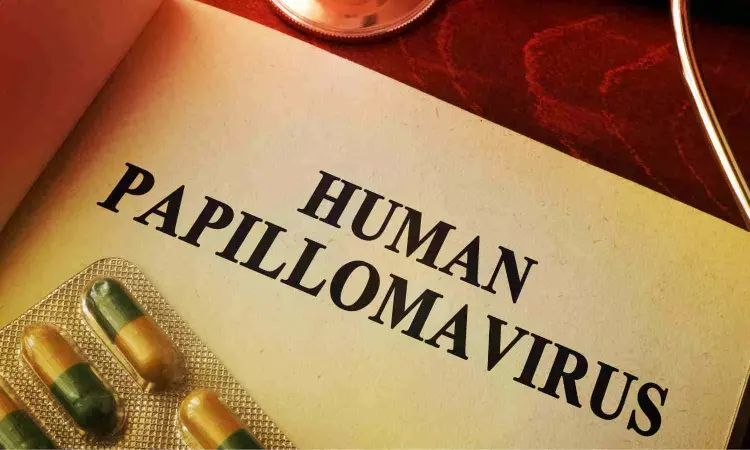- Home
- Medical news & Guidelines
- Anesthesiology
- Cardiology and CTVS
- Critical Care
- Dentistry
- Dermatology
- Diabetes and Endocrinology
- ENT
- Gastroenterology
- Medicine
- Nephrology
- Neurology
- Obstretics-Gynaecology
- Oncology
- Ophthalmology
- Orthopaedics
- Pediatrics-Neonatology
- Psychiatry
- Pulmonology
- Radiology
- Surgery
- Urology
- Laboratory Medicine
- Diet
- Nursing
- Paramedical
- Physiotherapy
- Health news
- Fact Check
- Bone Health Fact Check
- Brain Health Fact Check
- Cancer Related Fact Check
- Child Care Fact Check
- Dental and oral health fact check
- Diabetes and metabolic health fact check
- Diet and Nutrition Fact Check
- Eye and ENT Care Fact Check
- Fitness fact check
- Gut health fact check
- Heart health fact check
- Kidney health fact check
- Medical education fact check
- Men's health fact check
- Respiratory fact check
- Skin and hair care fact check
- Vaccine and Immunization fact check
- Women's health fact check
- AYUSH
- State News
- Andaman and Nicobar Islands
- Andhra Pradesh
- Arunachal Pradesh
- Assam
- Bihar
- Chandigarh
- Chattisgarh
- Dadra and Nagar Haveli
- Daman and Diu
- Delhi
- Goa
- Gujarat
- Haryana
- Himachal Pradesh
- Jammu & Kashmir
- Jharkhand
- Karnataka
- Kerala
- Ladakh
- Lakshadweep
- Madhya Pradesh
- Maharashtra
- Manipur
- Meghalaya
- Mizoram
- Nagaland
- Odisha
- Puducherry
- Punjab
- Rajasthan
- Sikkim
- Tamil Nadu
- Telangana
- Tripura
- Uttar Pradesh
- Uttrakhand
- West Bengal
- Medical Education
- Industry
HPV infection associated with elevated risk of sinonasal inverted papilloma, finds study

A new study published in the journal of Otolaryngology-Head and Neck Surgery showed an elevated risk of sinonasal inverted papilloma (SNIP) recurrence may be linked to human papillomavirus (HPV) infection.
First identified by Ward in 1854, inverted papillomas are benign, well-differentiated, locally aggressive tumors of the respiratory epithelium. They are distinguished by a high risk of recurrence and a 5% to 9% correlation with malignancy. Also, 5% to 15% of inverted papilloma lesions have been observed to undergo malignant transformation, with 1.7% to 56% of these lesions going on to produce synchronous carcinomas.
One kind of benign tumor that develops from the nasal epithelial mucosa or inside the paranasal sinuses is called a sinus inverted papilloma (IP) also known as Schneiderian papilloma, inverted papilloma, and sinonasal, epithelial, or transitional apillomas. These tumors frequently recur and have the potential to be locally devastating. Studies have not been able to consistently show a genuine link between HPV and inverted papilloma, despite the fact that its involvement in cervical cancer is widely documented and that inverted papilloma should play a comparable role. Therefore, Fayssal Alqudrah and team conducted this systematic review and meta-analysis to assess this possible link in detail.
To find the study data, the electronic databases Embase, PubMed, and Scopus were extensively searched. The analysis included case-control studies that reported SNIP recurrence data and HPV status determined by in-situ hybridization (ISH) and polymerase chain reaction (PCR). To calculate the 95% CI and pooled odds ratios (ORs), meta-analysis was conducted.
A total of 1116 benign SNIP tumors from 25 investigations were found. There were 849 SNIP that were HPV-, 231 of which were recurrent, and 267 SNIP that were HPV+, 103 of which were recurrent. In HPV+ tumors, the pooled standard OR for recurrence was 2.05 (95% CI: 1.31-3.19).
There was no statistically significant difference in stratification by high-risk and low-risk HPV subtypes. For both low-risk and high-risk HPV+ subtypes, the standard OR for SNIP recurrence was 1.57 and 1.67, respectively. According to recent data, benign sinonasal inverted papilloma tumors are more likely to recur if an HPV infection is present.
The meta-analysis of 1,116 benign SNIP cases revealed a pooled OR of 2.05 for recurrence in tumors that tested positive for HPV. The connection was true throughout the trials, even though there was no discernible difference in the recurrence risk between low-risk and high-risk HPV subtypes. Overall, HPV infections may be associated with an increased risk of SNIP recurrence.
Source:
Alqudrah, F., Kota, S., Morgan, J., Purnell, P. R., & McCormick, J. P. (2024). Human Papilloma Virus Infection and Sinonasal Inverted Papilloma Recurrence: A Meta‐Analysis. In Otolaryngology–Head and Neck Surgery. Wiley. https://doi.org/10.1002/ohn.1108
Neuroscience Masters graduate
Jacinthlyn Sylvia, a Neuroscience Master's graduate from Chennai has worked extensively in deciphering the neurobiology of cognition and motor control in aging. She also has spread-out exposure to Neurosurgery from her Bachelor’s. She is currently involved in active Neuro-Oncology research. She is an upcoming neuroscientist with a fiery passion for writing. Her news cover at Medical Dialogues feature recent discoveries and updates from the healthcare and biomedical research fields. She can be reached at editorial@medicaldialogues.in
Dr Kamal Kant Kohli-MBBS, DTCD- a chest specialist with more than 30 years of practice and a flair for writing clinical articles, Dr Kamal Kant Kohli joined Medical Dialogues as a Chief Editor of Medical News. Besides writing articles, as an editor, he proofreads and verifies all the medical content published on Medical Dialogues including those coming from journals, studies,medical conferences,guidelines etc. Email: drkohli@medicaldialogues.in. Contact no. 011-43720751


